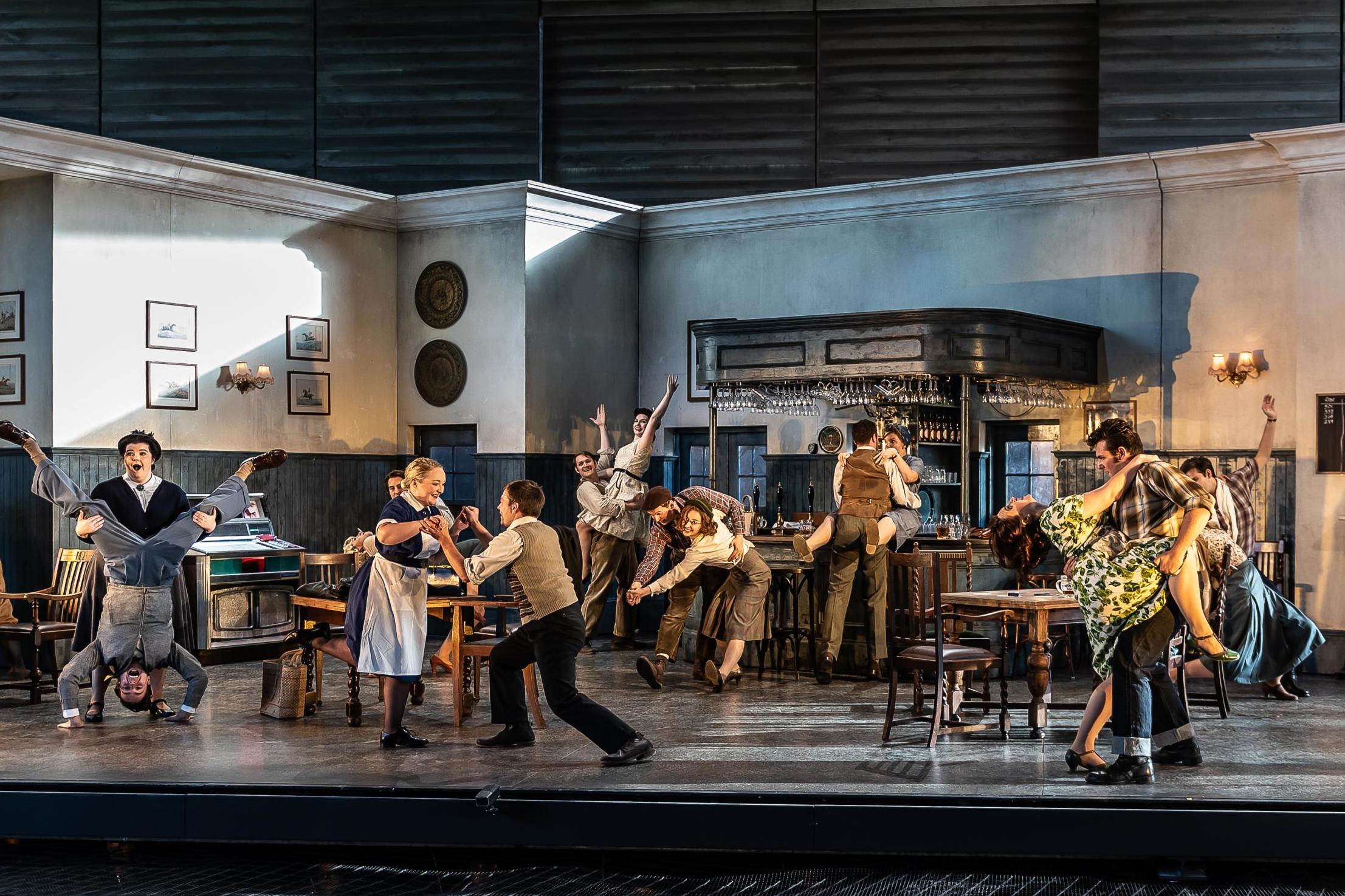The Bartered Bride, Garsington Opera, review: The most brilliantly choreographed display of acrobatics imaginable
However, Michael Boyd’s production of Don Giovanni is a damp squib

Your support helps us to tell the story
From reproductive rights to climate change to Big Tech, The Independent is on the ground when the story is developing. Whether it's investigating the financials of Elon Musk's pro-Trump PAC or producing our latest documentary, 'The A Word', which shines a light on the American women fighting for reproductive rights, we know how important it is to parse out the facts from the messaging.
At such a critical moment in US history, we need reporters on the ground. Your donation allows us to keep sending journalists to speak to both sides of the story.
The Independent is trusted by Americans across the entire political spectrum. And unlike many other quality news outlets, we choose not to lock Americans out of our reporting and analysis with paywalls. We believe quality journalism should be available to everyone, paid for by those who can afford it.
Your support makes all the difference.Bedrich Smetana described The Bartered Bride as “only a toy, and composing it was child’s play”. He had written it, he said, to spite those who regarded him as a Wagnerian who couldn’t write light music. This peerless musical comedy is now seen as the epitome of the Czech spirit, and is loved the world over. And at Garsington director Paul Curran has created the most felicitous production of it I could ever imagine.
Annabel Arden’s Glyndebourne production of Il barbiere di Siviglia last week was a reminder of the traps awaiting directors who overegg the pudding: clogged with extraneous comic business, Rossini’s perfectly constructed comedy sank from view. But with The Bartered Bride Curran’s touch on the tiller is so light and responsive to both Smetana’s score and Karel Sabina’s libretto that the work has a shimmering clarity.
Kevin Knight’s realistic designs place the drama in the Sixties, and with one deft scene change – the chorus doubling up as stage hands – they evoke a provincial town hall and tavern. We can readily believe in this community as they hurl themselves (without seeming drilled) into the folk dances which power the action. This village is both utterly convincing and a lovely place to be.
The climax of the action is the arrival of the travelling circus, which offers the coolest and most brilliantly choreographed display of acrobatics imaginable. But every scene has its own pleasures, as Jenik’s plan – to outwit those who would steal his beloved Marenka and marry her to the stammering booby Vasek – gradually takes mischievous shape. But the glory of the evening lies in four superb performances.
Joshua Bloom sends up his self-important character as mayor Kecal with a voice like thunder, while Stuart Jackson’s Vasek is sung with refined sweetness and immaculate comic timing. Brenden Gunnell’s Jenik and Natalya Romaniw’s Marenka come across as world-weary grown-ups rather than star-crossed kids, but their scenes have a comic tenderness which warms the heart; both sing with extraordinary grace and power. The Philharmonia Orchestra under Jac van Steen’s direction provides a perfect underpinning.
But the second offering of the Garsington season is a damp squib. Michael Boyd’s production of Don Giovanni is predicated on the idea that the Don is a painter and seller of Jackson Pollock-style daubs, though why some of the paintings which fill his studio should be in the exquisite Baroque style of Claude Lorrain is not made clear. Indeed, as the opera progresses so many things prove unclear that I stop trying to find rhyme or reason for any of them.
Boyd seems to have no idea how to develop his initial conceit. The Pollock daubs and the elegant Lorrains are shunted endlessly to and fro across the stage, which becomes the scrapyard for a wearisome succession of pathetically half-baked ideas. The perennially tricky problem of how the Don should escape at the end of the Act One party is solved here by the appearance of a mysterious posse of gunmen who appear from nowhere and form a protective cordon round him. And god only knows what Boyd thought he was playing at with the protagonist’s “descent into hell” at the close: the scene just fizzles out. Even by am-dram standards, this show is dire.
Which is very tough on the singers. None of them reaches the standard set by the soloists of The Bartered Bride, but some have their virtues. Jonathan McGovern’s Don lacks charisma but is gracefully sung; David Ireland’s Leporello is fatally undermined by dismally unfunny direction. If Camila Titinger and Sky Ingram incarnate Anna and Elvira with less than ideal vocal control, Mireille Asselin’s Zerlina has lovely warmth and sweetness, while Thomas Faulkner makes an endearingly plausible Masetto. Tom Piper’s design and Liz Ranken’s movement direction are incomprehensibly scrappy. Douglas Boyd conducts with ponderous tempi. And since this Boyd – no relation to the other – is also Garsington’s artistic director, there was no higher authority who could have called a halt to this misconceived enterprise. ★★☆☆☆
The Bartered Bride until 30 June; Don Giovanni until 21 July
Join our commenting forum
Join thought-provoking conversations, follow other Independent readers and see their replies
Comments